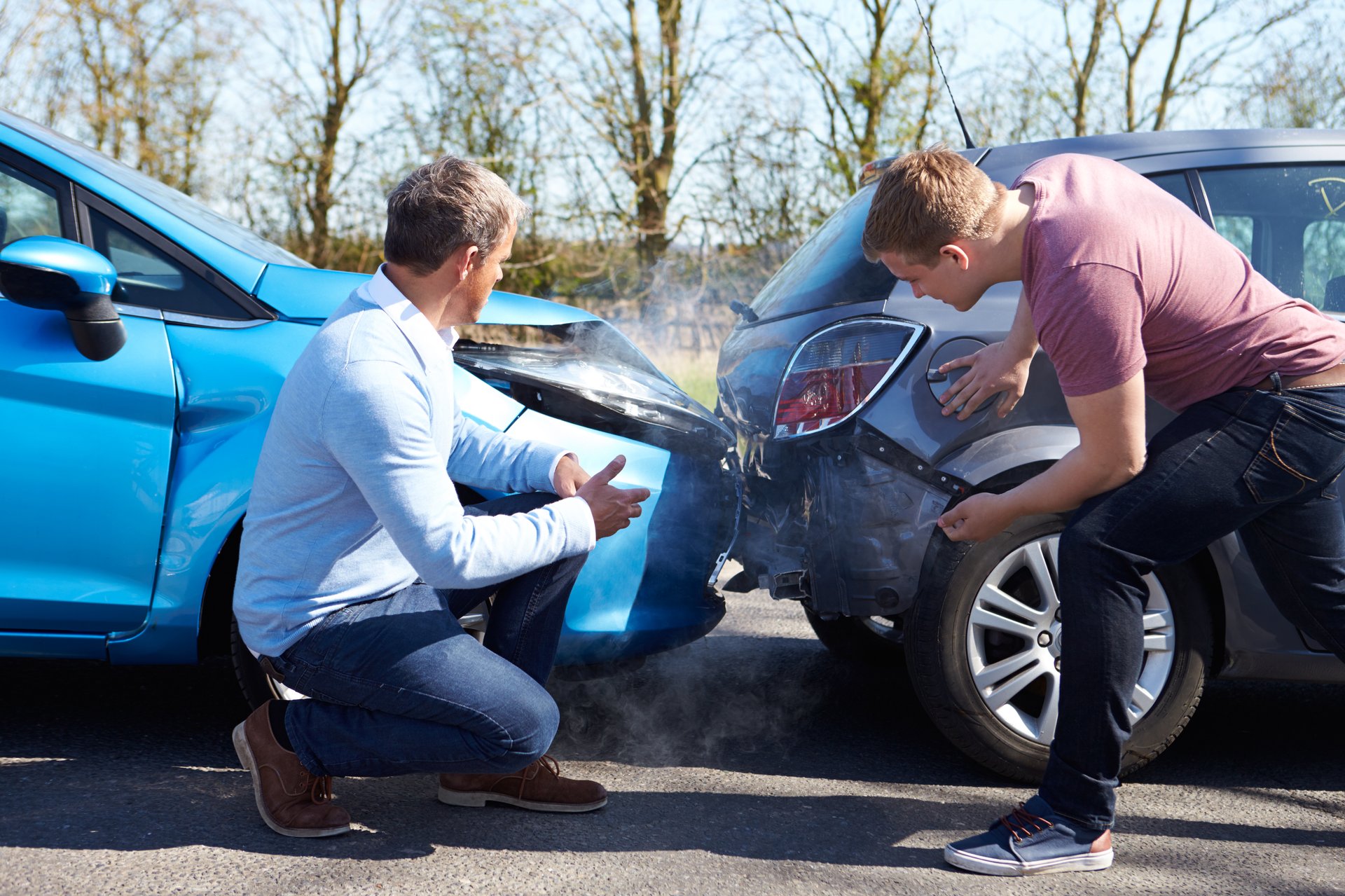
I vividly remember one warm spring evening in May 2014.
That was the day I believe a couple targeted me for auto insurance fraud.
I was hurriedly wheeling a shopping cart out of the supermarket toward my Nissan Xterra when I saw the woman with her arms crossed, scowling at me as she leaned against a sedan parked next to mine. I made some offhand comment about the weather.
“You are paying for this damage you did to my car!” she shouted, causing passing shoppers to turn. “I work for the government. I want your insurance card.”
That’s when I saw the man next to her, running his finger over what looked like a large scrape on the side of the car.
First I felt some combination of panic and embarrassment. Then I was just angry. I knew the couple was trying to scam me.
“Almost everyone here works for the government,” I said. (We were just outside Washington, D.C.) “And I didn’t damage your car.”
The woman was screaming as I loaded my groceries into my car. I told her that I wasn’t going to give her my insurance card or pay her cash but that I’d wait if she wanted to call the police.
“No, no, we don’t need to do that,” said her companion. “I’m just looking at the car … I really don’t think this is new damage.”
The woman glared at me and muttered as the two walked toward the store. I drove away.
Crime that costs billions
This incident was very likely a variation of auto insurance fraud, according to Frank Scafidi, director of public affairs, West Coast, for the National Insurance Crime Bureau (NICB).
Another common form of auto insurance fraud involves moving vehicles — which makes it both costly and potentially dangerous.
Many of those accidents are variations of “swoop and squat” — in which a perpetrator maneuvers his car in front of an unsuspecting driver and then stops, causing an accident. Typically, people in the vehicle that was struck will say they were injured. And, of course, the driver in the car that strikes another from behind is generally seen to be at fault.
There are many variations on this scam, but the result is generally the same. The people in the car claim they were injured. They may also claim more people were in the car than actually were.
It happens to many people, and the insurance payoff to fraud adds up to big money. There’s the immediate cost to the driver, in the form of a deductible, and potentially an increased premium going forward.
Then there’s the cost paid by insurance companies on false claims.
It’s hard to nail down a precise number, but the nonprofit Coalition Against Insurance Fraud estimates that some $80 billion is lost to insurance fraud of all kinds each year. The FBI estimates the total — minus health insurance fraud — to be about $40 billion per year, which the bureau translates into increased premiums of $400 to $700 a year for each American family.
“[Fraudulent claims] are really a minor component of claims, but they are very underrepresented,” Scafidi told me. “That’s important to understand.”
How to avoid being scammed
If you are in an accident or sense you’re caught in a scam, consider these ideas from the Injury Claim Coach and officials to make sure you aren’t a victim of insurance fraud:
- Call the police. I likely should have called them myself when the couple approached me, even though many times police won’t respond to an accident unless there is an injury. Even if they don’t respond, calling them is never a bad idea.
- Write down details. It’s easy to forget things such as time of day, names, license numbers and other particulars. Also, write down anything the other person says to you. That’s especially important if someone says “I’m not hurt” or “I shouldn’t have pulled out in front of you.” Such statements may be allowable in court.
- Collect witness statements. You don’t have to be very formal. Jot down what people say they witnessed. Be sure to get their names and contact information.
- Take photos. Don’t wait until you get home. Take photos right at the scene before cars are moved.
- Don’t pay on the spot. The couple that stopped me was likely hoping I would pay them cash rather than call the police or insurance company. Even if I had damaged their car, I would not pay under the table. That could leave me vulnerable.
- Call your insurance company. They will be your allies as you work through settlement.
What’s your experience with small accidents and apparent insurance fraud? Share with us in comments below or on our Facebook page.




Add a Comment
Our Policy: We welcome relevant and respectful comments in order to foster healthy and informative discussions. All other comments may be removed. Comments with links are automatically held for moderation.